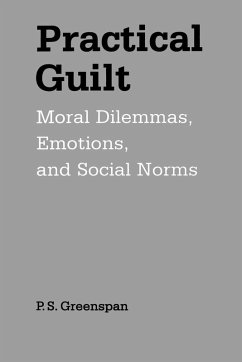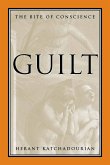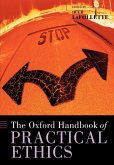P.S. Greenspan argues that dilemmas may be regarded as possible consequences of a set of social rules designed to be simple enough to be teachable. Where these rules prohibit action either way, the problematic motivational force of dilemmas can be explained by reference to the role of emotion as a second-best substitute for action. Guilt is seen as a natural but contested candidate for the sort of emotional sanction for wrongdoing that might supply motivational force in dilemmas. In general, it functions as a way of preserving virtue against moral luck. Greenspan defends guilt in the face of dilemmas on the basis of a "nonjudgmentalist" account of emotions as sometimes appropriate even in cases of unavoidable wrongdoing. In its treatment of metaethical issues the argument of the book outlines a new way of packing motivational force into moral meaning by way of emotion that allows for a socially based version of moral realism. Since, on the proposed account, emotions underpin the teachings of moral language, Greenspan shows how human emotional capacities can affect the very content of morality by providing its motivational force.
Hinweis: Dieser Artikel kann nur an eine deutsche Lieferadresse ausgeliefert werden.
Hinweis: Dieser Artikel kann nur an eine deutsche Lieferadresse ausgeliefert werden.








